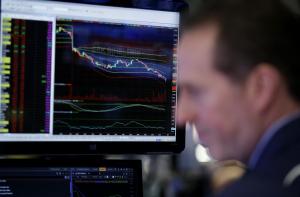March 28 (UPI) — Over-supply concerns on Wednesday spoiled the rally that pushed oil prices above $70 per barrel in recent sessions, though continued recovery is expected.
Crude oil prices spiked earlier in the week in response to simmering tensions between Saudi Arabia and Iran. Tehran in particular has been under pressure for its support of the Houthi rebel group in Yemen just as U.S. President Donald Trump surrounds himself with advisors with a hawkish stance on Iran, one of the top producers in the Organization of Petroleum Exporting Countries.
After an initial jump, crude oil prices turned south on Tuesday amid expectations of a build in U.S. crude oil inventories. The American Petroleum Institute reported after the market closed that U.S. stockpiles jumped 5.3 million barrels last week. Federal data are published midway through the Wednesday morning session and will be compared with an average increase of 3.5 million barrels for this week.
Analysts surveyed Monday by commodity pricing group S&P Global Platts expected an increase of 1 million barrels.
The price for Brent crude oil was down 0.52 percent as of 9:18 a.m. EST to $69.10 per barrel. West Texas Intermediate, the U.S. benchmark for the price of oil, was down 0.8 percent to $64.73 per barrel.
Swiss global financial services company UBS said in a market report emailed to UPI that concerns about U.S. sanctions on Iran and Venezuela were putting momentum behind the price for crude oil. It raised its short-term forecast from $70 per barrel for Brent at the high end to $77 per barrel.
“While we still believe that non-OPEC supply growth will outpace demand growth this year, lower crude prices are likely to come only later and the price decline could be less pronounced,” the report read.
For the U.S. economy, the Commerce Department revised its estimate for fourth quarter gross domestic product, saying the annualized rate improved 2.9 percent, compared with 2.5 percent in its previous estimate. While improved, it’s lower than the 3.2 percent rate for the third quarter.
The U.S. economy grew 2.3 percent last year, compared with 1.5 percent in 2016.

COMMENTS
Please let us know if you're having issues with commenting.